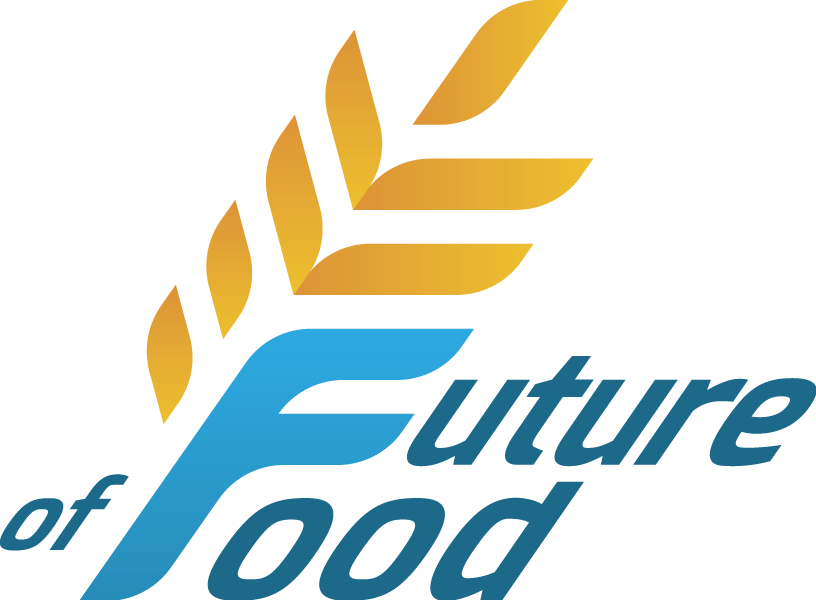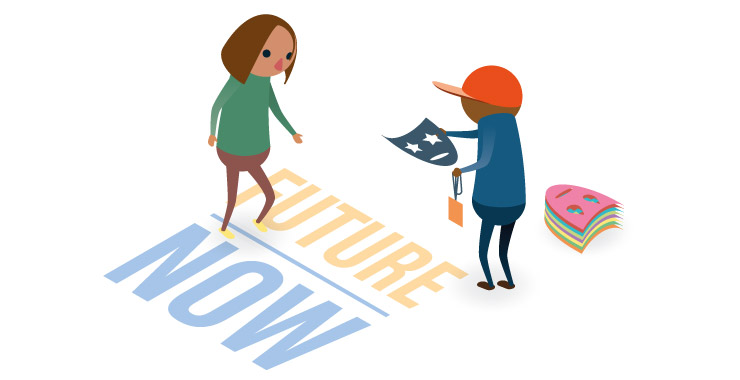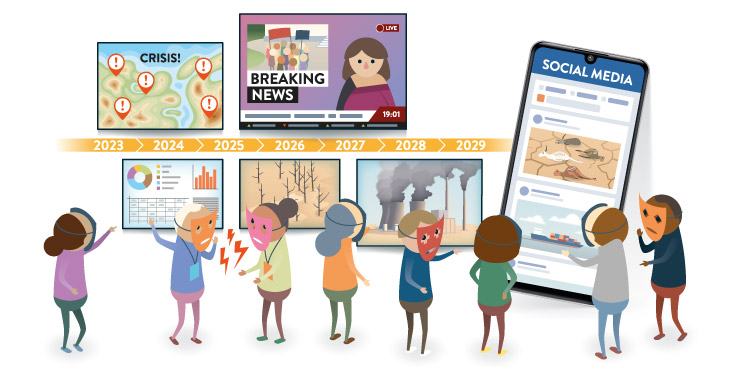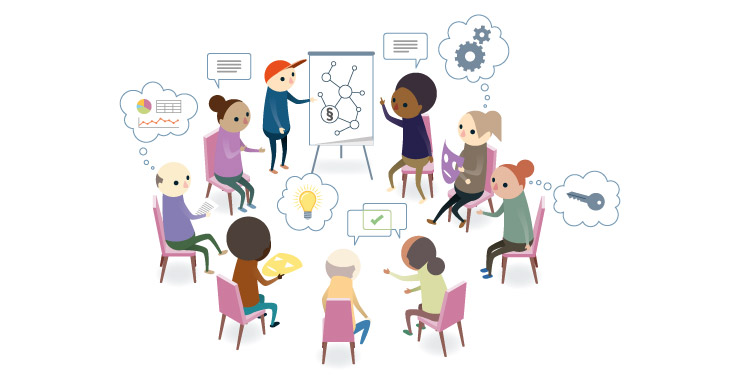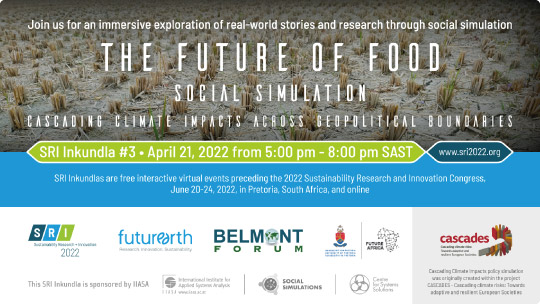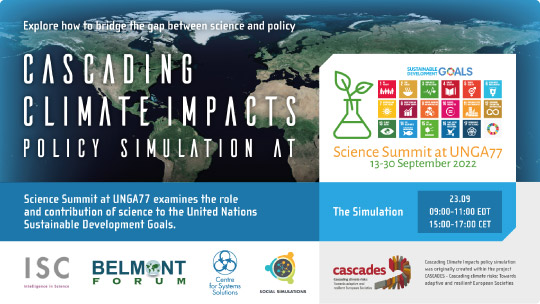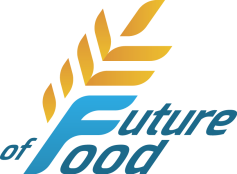
What is
the Future of Food
Simulation?
The global food production system has become increasingly complex and intertwined with the domains of trade, security, and finance. At the same time, it continues to be very vulnerable to climate impacts such as floods, tropical cyclones, wildfires, droughts, and heatwaves that are becoming more and more common in an unstable climate.
Globalization further escalates these impacts that can now easily cascade from one region to another. A drought in one major breadbasket, followed by increased food prices may pose a threat to the security of food import-dependent regions on the other side of the globe.
Extreme weather events may directly affect not only food production sites but also major transportation routes and hubs, disrupting critical supply chains on a global scale. On top of that, it is now better recognized that food production practices greatly impact biodiversity, communities, lands, and the environment, accelerating the climate crisis.
How does it work?
The Future of Food simulation is an online, narrative-oriented experience that takes the participants into the near future.
Technical Specifications
Online workshops
face-to-face workshops
During the face-to-face workshops participants use their phones or tablets. They connect via the internet with a mobile version of the simulation platform. There they receive emails from supervisors and lobbyists, and can suggest and vote on policies.
Exploration Module
Narrative-based, online, multimedia experience presenting a fictional yet plausible story of the transmission of climate impacts.
The exploration module consists of a number of story arcs, each presented via one or more short videos. This content can be accompanied by news headlines and social media entries.
Players can access the self-exploration module using a special web application that uses a map to set particular story arcs in the relevant geographical context. It can be accessed anytime, by anyone, without a login or a moderator.
Global version
Amidst the ongoing uncertainty and unrest sparked by recent threats to global food security and prosperity, the nations of the world have decided to convene the Emergency Summit on the Future of Food in Nairobi. All nations and key stakeholders have been invited to take part in discussions at the Summit in 2026. The general mood – a mix of grave concern and cautious optimism – is palpable.
During the simulation, participants will work together in up to five working groups.
Working Group 1:
Free Trade
Working Group 2:
Agrochemical production and trade
Working Group 3:
Feeding the planet
Working Group 4:
Building resilience to food crises
Working Group 5:
Impacts of food production on biodiversity
European version
The first session of the European Taskforce on Food opens in 2028. As the world faces uncertainty and unrest sparked by recent threats to global food security, key decision-makers gather to tackle the crisis. This High Level meeting aims to serve as a turning point for achieving global and sustainable systems change. The goal of the Taskforce is to develop policy recommendations that will guide the legislators from the European Union, the United Kingdom, and other countries in tackling the ongoing agricultural commodities crisis.
Participants will work together in up to three Working Groups.
Working Group 1:
Trade, Supply and Value Chains
Foreign Policy, Security, and Development
Working Group 3:
Finance and Business.
Applications
Global Online version for the Sustainability Research + Innovation Congress Inkundla
Global Online version for “Science advice under pressure” conference organized with CRS and International Institute for Applied Science for the Science Advice For Policy By European Academies (SAPEA)
Global Version for the United Nations General Assembly 77th Science Summit with the Belmont Forum
Version for Science and Policy makers at the Science and Diplomacy course by the American Association for the Advanced Science (AAAS) and The World Academy for Science (TWAS)
CASCADES Core Workshop – read the lessons from the final workshop
The COP27 Cascading Climate Risks Virtual Pavilion hosted by the Chatham House
Benefits
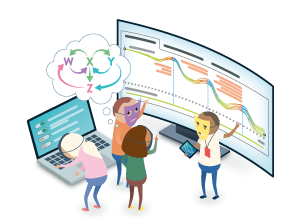
Future Planning
Helps organizations to plan for the future by modeling potential social scenarios and predicting their likely outcomes.
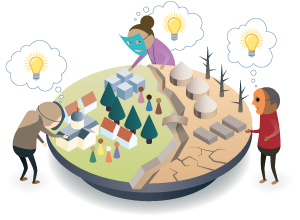
Creativity
Inspires innovation by allowing participants to experiment with new ideas and approaches in a low-risk environment.
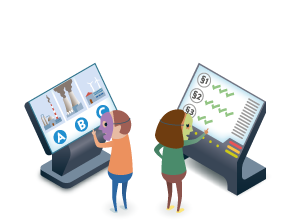
Better decision-making
Helps decision-makers to better understand complex social systems and make more informed decisions based on the insights gained from the simulation results.
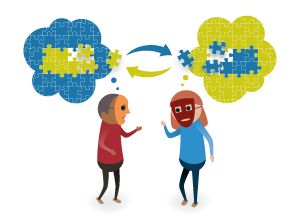
Agreement
In the safe environment of the simulation, participants are more empathetic, trusting, and inclined towards cooperation. Thus, even if debates become heated, all voices are heard, trade-offs negotiated, and a joint policy response accepted.
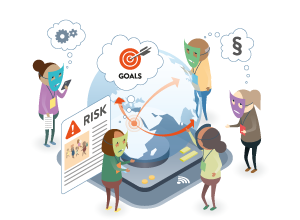
Collaboration
Promotes collaboration and team building by providing a shared experience that requires participants to work together towards a common goal.
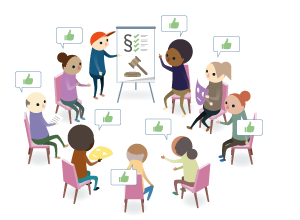
commitment to action
After finding a common ground, participants commit to implement their jointly developed strategy, and use their experience and knowledge to face real-life challenges.
participants reactions
CASCADES identifies how the risks of climate change to countries, economies, and peoples outside Europe might cascade into Europe. It does so by analyzing how these risks interact with major challenges facing European societies. We are working with a diverse range of stakeholders – both within and outside Europe – to address these risks from a multitude of approaches.
designers
Lukasz Jarzabek
Piotr Magnuszewski
Hubert Brychczynski
Paolo Campo
Lukasz Jarzabek
Piotr Magnuszewski
Noam Obermeister
Natalia Rudiak
Jan Sendzimir
Aleksandra Solinska-Nowak
Katarzyna Szewczyk
Agata Sliwa
Władysław Zołoto
Bartosz Naprawa
Anna Koch
Weronika Adamczak
Karolina Gajecka
Michalina Kulakowska
Magdalena Liszka
Jakub Damurski
CONTACT us

The project received funding from the European Union’s Horizon 2020 research and innovation programme under grant agreement No 821010.
PROJECT PARTNERS:


